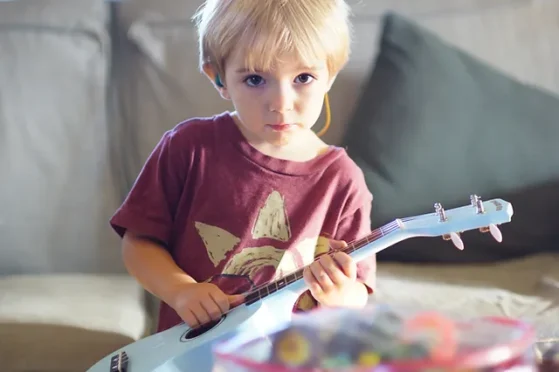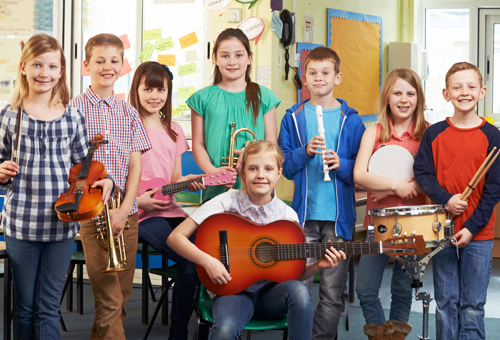Benefits of Music Education for Children | Shaping Futures
Introduction
In today’s fast-paced world, where academic excellence often takes precedence over holistic development, the importance of music education for children is often overlooked. However, delving into the realm of music reveals a multitude of benefits that extend far beyond the realm of melody and rhythm. From cognitive development to emotional well-being, the impact of music on a child’s growth is profound and enduring. In this blog, we will explore the myriad reasons why every child should have the opportunity to learn music and how it contributes to their overall development.
Cognitive Development
- Music education is a powerful tool for stimulating various regions of the brain, enhancing cognitive abilities such as memory, attention, and executive function.
- The process of learning to read music notation involves decoding symbols, recognizing patterns, and understanding mathematical concepts, which in turn, promotes critical thinking and problem-solving skills.
- Playing a musical instrument requires fine motor skills, hand-eye coordination, and spatial awareness, all of which are essential for overall physical and neurological development.

Academic Performance
- Numerous studies have demonstrated a positive correlation between music education and academic achievement.
- Children who participate in music programs often exhibit higher levels of engagement, focus, and perseverance, leading to improved performance in subjects such as mathematics, language arts, and science.
- The discipline and dedication required for regular music practice can instill valuable study habits and time management skills that extend beyond the realm of music.

Emotional Expression
- Music provides a powerful means of emotional expression, allowing children to convey feelings and experiences that may be challenging to articulate verbally.
- Engaging with music can help children process a wide range of emotions, including joy, sadness, anger, and anxiety, in a safe and constructive manner.
- Through playing, singing, and creating music, children develop a sense of self-confidence and self-esteem as they express their unique identities and experiences.

Social Skills
- Participating in group music activities, such as band rehearsals or choir performances, fosters essential social skills such as teamwork, cooperation, and communication.
- Children learn to listen to others, take turns, and support their peers, cultivating empathy, respect, and social awareness.
- Music transcends cultural and linguistic barriers, providing a common ground for children from diverse backgrounds to connect, collaborate, and build meaningful relationships.

Cultural Awareness
- Music is a universal language that reflects the diversity and richness of human culture.
- Through music education, children are exposed to a wide variety of musical styles, genres, and traditions from around the world, fostering an appreciation for cultural diversity and global interconnectedness.
- Learning about different musical traditions helps children develop a sense of cultural identity, pride, and empathy for people from diverse backgrounds.

Creativity and Innovation
- Music education nurtures creativity and innovation as children explore different sounds, melodies, and rhythms.
- Playing an instrument or composing music encourages experimentation, risk-taking, and imaginative thinking, fostering innovative problem-solving skills that are essential for success in the 21st century.
- The creative skills developed through music education can be applied to various aspects of life, including art, science, technology, and entrepreneurship.

Lifelong Enjoyment and Fulfillment
- Music provides a lifelong source of enjoyment, inspiration, and fulfillment, enriching every stage of life.
- Lifelong participation in music-making activities, such as community ensembles or amateur performances, fosters a sense of belonging, camaraderie, and purpose.
- Whether listening to music, performing with others, or creating their own compositions, individuals derive profound joy and satisfaction from the transformative power of music throughout their lives.

Conclusion
In conclusion, the benefits of music education for children are vast, diverse, and far-reaching, encompassing cognitive, emotional, social, and cultural dimensions. By providing children with access to music education, we empower them to unlock their full potential, nurturing their intellect, creativity, and humanity. As parents, educators, and advocates, it is our collective responsibility to recognize the importance of music in every child’s life and ensure that all children have the opportunity to experience the transformative power of music education.
For more information and exciting resources about learning music, visit our website at The Mystic Keys. For more music content and exciting offers follow us on








